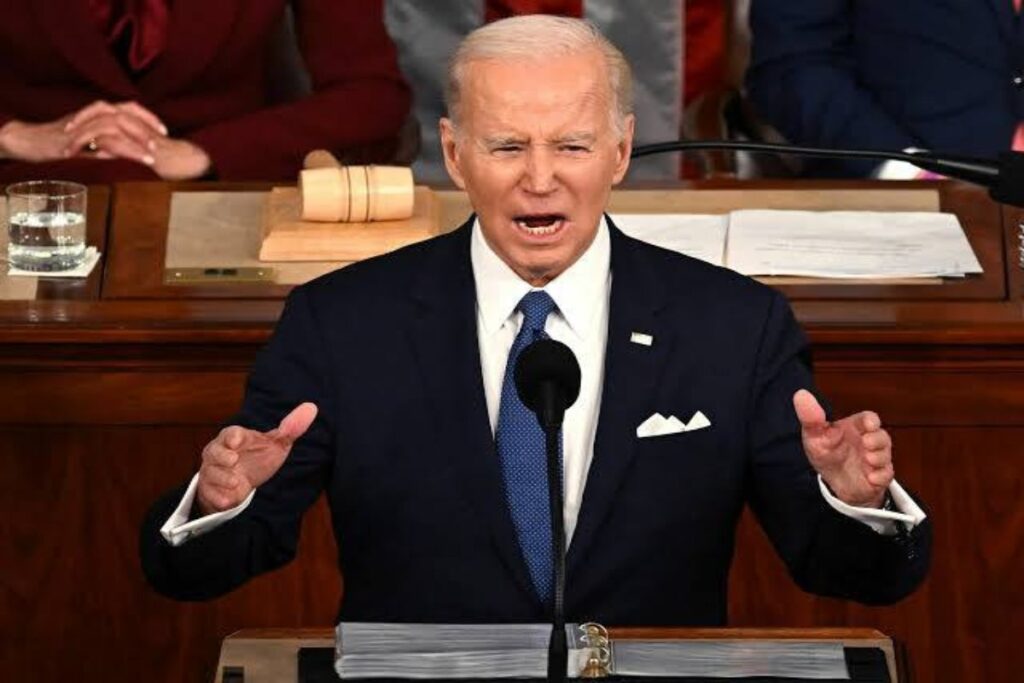Last Friday, as U.S. retaliatory strikes commenced following the deaths of three American troops in an Iran-backed militant group’s drone attack, President Joe Biden stands at a pivotal moment in the Middle East conflict. This juncture bears substantial risks of escalation and weighs heavily on election-year political considerations.
The debate inside the White House ahead of the strikes was tense, according to a U.S. official. The administration weighed options that some believe will send a clear message to Iran-backed proxy groups to stop the attacks. Others fear it could trigger broader fighting in the region that the Biden administration has strenuously sought to avoid.
At the same time, Biden is under pressure from many Republicans to act even more forcefully. Some are calling on him to strike directly inside Iran. Earlier this week, Biden laid some blame on Iran for providing weapons to the militant groups, many of which are labeled terrorist organizations by the U.S.
Still, Biden made it clear what his bottom-line considerations were: “I don’t think we need a wider war in the Middle East.” That’s not what I’m looking for,” he told reporters.
ALSO READ: “America Must Show Strength!” GOP Slams Biden After Drone Attack Kills Three US Troops
Meanwhile, some Democrats in Congress are advising caution. Democratic Rep. Seth Moulton, a veteran, said his colleagues calling for a direct conflict with Iran are “playing into the enemy’s hands.” “We must have an effective, strategic response on our terms and our timeline. Deterrence is hard; war is worse,” he said in a statement.
Miller, a former State Department diplomat, said: “You have to ask yourself the question: When has war been kind to an American president?” Hamas is designated as a terrorist organization by several countries and international bodies, including the United States, the European Union, Canada, Israel, and others.
POLL—Should the Government Increase Taxes on the Wealthy To Reduce Economic Inequality?
During the Afghanistan and Iraq conflicts, public sentiment in the United States shifted, with polls indicating weariness towards prolonged involvement in the Middle East.
Despite President Biden’s stance as a critic of the Iraq War and his decision to withdraw American troops from Afghanistan, the tumultuous nature of the withdrawal has incurred political repercussions for his administration.
ALSO READ: “It’s a Slap in the Face!” Black Male Voters Criticize Biden Over Millions Sent to Ukraine
Miller emphasized the political risks associated with wars for American presidents, cautioning that such conflicts typically lead to negative polling outcomes. He suggested that the Biden administration has been exceedingly cautious in its approach towards Iran, a sentiment echoed by Vaez of the International Crisis Group.
Vaez highlighted the substantial differences between a potential war with Iran and past conflicts in Iraq and Afghanistan, noting Iran’s formidable size and strength. He underscored the administration’s reluctance to engage in another military entanglement in the Middle East, attributing their cautious approach to the complexities of the situation.
You Might Also Like:
Kristi Noem Rallies Support for Abbott, Offers to Drive Him More Razor Wire
FBI Returns Painting Stolen By Mobsters Over 50 Years Ago to Rightful Owner
JP Morgan Bank to Pay Over $75 Million Settlement Amid Claims of Aiding Jeffrey Epstein
“America Must Show Strength!” GOP Slams Biden After Drone Attack Kills Three US Troops
Viral Taylor Swift Deepfakes Emphasize the Need for Legal Protection for Victims
